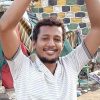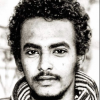Institutional Transformation Programme
The Ministry of Infrastructures and Transportation and the Ministry of Urban Development, Roads and Bridges are the federal ministries with executive authority over the formulation and administration of rules, regulations and laws relating to Transportation, Urban Development, Physical Planning, Housing, Infrastructure, National Highways and Roads. they currently have thirteen central administrative units under their leadership.
In 2019, The economic and health crises triggered the rising calls for change and reform which mounted to the peaceful revolution which toppled off the former regime. Upon the establishment of the Sudan Interim government, it became ever more important that the government should be efficient and effective. As such, reform becomes necessity, not a choice.
The programme aims to achieve the following objectives:
-
- Achieve operational excellence.
- Improve economic enablers.
- Enhance Service Standards.
- Improve transparency and accountability.
- Strengthen the engagement and role of stakeholders and the private sector.
- Improve Information and communication Management.
The programme’s key action areas are:
-
- Vision and strategy: defining the vision and the Target Operating Model, understanding where the Ministry is today, and where it wants to be, and to bridge the gap.
- Organizational reform and restructuring: modernizing the outdated federal organizational structures, policies and practices.
- Project planning, performance and delivery: addressing project planning, performance and accountability issues.
- Digital transformation: addressing the integration of digital technology into all activities, fundamentally changing culture and methods of operation and delivery.
Phase 1 Capacity Building: TMT-Capacity Building for Citizen-Led Transformation
Requesting Organization:
Federal Ministry of Infrastructure and Transport (FMIT) -now the Federal Ministry of Transport and the Federal Ministry of Urban Development, Roads and Bridges.
Training providers:
Maastricht School of Management (MSM)
Training Fund
This project is part of the Orange Knowledge Program (OKP) funded by the Dutch Ministry of Foreign Affairs and managed by Nuffic.
Main Beneficiaries
Beneficiaries are both the Federal Ministry of Transport and the Federal Ministry of Urban Development, Roads and Bridges through the following implementation units:
-
- Sudan National Railway Authority
- Sudan Air
- River Navigation Authority
- National Ports Authority
- Land Transport Authority
- National Roads and Bridges Authority
- The Supreme Council for Urban Development and Planning.
- The National Fund for Housing and Reconstruction.
Objective:
The goal of the training is to have an immediate impact on the trainees’ daily performance, equipping them with practical instruments that are ready to be applied directly to their place of work and more importantly to their part as task force leading the Ministry transformation Programme MTP (starting from formulation, planning and management). Thus, the training needs to focus less on the soft theoretical issues and more on practical and action-oriented learning.
For this reason, 2 “Think Lab” sessions are integrated. These “Think Labs” have the goal to interactively work on the planning and operationalization of a draft roadmap, a draft strategic plan and an operational plan, concluding this roadmap with skills that at end of the training equip participants with improved practical skills and competences for the design and management of KPI’s of this roadmap
Description:
The Tailor-made-Training TMT comprises 6 main course topics, divided over 5 sessions periods (lasting from 4 to 8 consecutive days)– to be spread over a 6 months’ span, complemented with 2 days working on the final interactive assignment (these 2 days are called “Think Lab days”). The closing Think Lab is planned within the last 2 months of the project duration.
The training is on practices of development project management and change management for senior civil servants (strategy) and middle management (Management) with no previous training in change management. Moreover, additional focus will be given to project planning, monitoring and financing
Mode of delivery:
All sessions are to be delivered online, a workshop for each session shall be set up locally at a central venue setting, suitable for video conferencing/ distant learning so that the trainees can interact with one another and strengthen their team building skills. The role of the training provider and local expert will be crucial to fill in the gaps identified in the progress towards the Think Labs sessions and to guide the distance group dynamics and interactive distance learning process.

Professor Robert Brown
“At the heart of Tuti resident’s collective action is the Sudanese cultural tradition of Nafir and a spriti of solidarity an generosity towards others. What is also remarkable is the sense of Nafir present in the team itself.”

Mark Harvey
“By studying in depth and highlighting the dynamics and properties of the historically-embedded and community-owned Sudanese flood Early Warning System, the ‘Taya’ system of Tuti Island, SUDTT has managed to give prominence to the importance of traditional disaster risk reduction (DRR) mechanisms in community-based climate resilience efforts. Notably, this has been undertaken by SUDTT in a way that has galvanized the attention of the rapidly growing global community of climate adaptation, climate resilience, and climate DRR experts.”

Dr Mohamed Salah Eldin Mudawi
“With appropriate funding and support, this project could amplify the utilization of indigenous practices and experiences for the benefit of numerous other similar communities.”

Barbara Minguez Garcia
“I can’t express enough how proud I am of this team of professionals, and how much I admire their dedication and resolution, together with the commitment of the local community members in Tuti Island, who joined forces to face the very adverse situation and continue preserving and using their traditional knowledge to increase their own resilience.”

Faith Chivava
“A standout feature of the HEART project is its comprehensive engagement across all levels of stakeholders—from grassroots participants to policymakers at local, national, regional, and international tiers.”

الشهيد عباس فرح
ملتزم بالعصيان حتى تتحقق أهداف الثورة

الشهيد أستاذ أحمد الخير
يا كاتب التاريخ هيا حينا
وامدد يديك مصافحاً أيدينا
وامسح بدمع الأشقياء حكومةً
حكمت علينا بالبكاء سنينا
أحمل كتابي للحكومة قل لها
تتلو على أرواحنا ياسينا
وإذا عزمت فلا تكن متردداً
ولك السلام وما مضى يكفينا
الشهيد أستاذ أحمد الخير

الشهيد محمد الفاتح النمير
انا لست رعديداً يكبل خطوه ثقل الحديد

الشهيد عبدالسلام كشة
نخاف على ثورتنا من النخب

الشهيد محمد هاشم مطر
حرام علينا يروح دم الشهيد هدر

